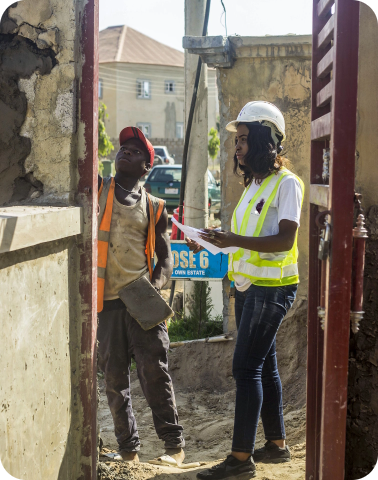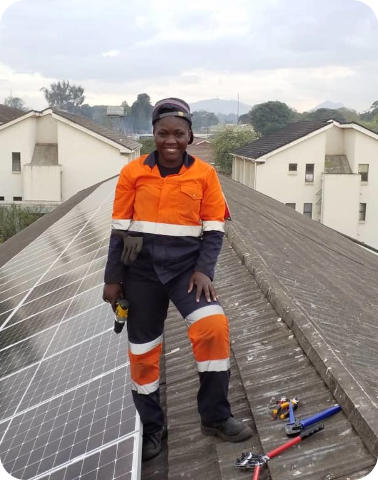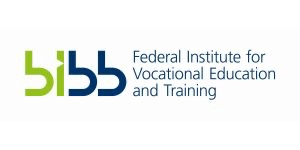African TVET systems are ill-equipped to deliver new qualifications and competencies to support digitalization, despite appreciating the value of digitalization for economic growth and employment.
Identification: The results of a 2020 UNESCO-UNEVOC survey suggests that African TVET teachers/ trainers often have limited knowledge regarding what digital skills and knowledge are required owing to a lack of sufficient information on labour market Only 40% of African TVET stakeholders surveyed in 2020 said that their country regularly conducts national skills forecasts that pay explicit attention to the new skills required in a digital economy, and an even lower percentage (20%) said that their country’s national skills forecasts pay attention to the new skills required in a knowledge economy. (UNESCO-UNEVOC 2020)
A 2020 World Bank study likewise noted a lack of reliable metrics of digital skills as well as limited availability of any data on digital skills. For example, most large-scale household and labour force surveys conducted in Africa do not systematically collect information on digital skills. (World Bank 2020)
Integration: Prior to the COVID-19 pandemic, national policies on digitalization in education in most low-income and lower-middle-income countries – the bulk of which are located in Africa - were still in the development stages and tended to target general education, with little or no attention paid to TVET. (COL 2015)
Implementation: A 2022 UNESCO-UNEVOC trends mapping study on digital skills development in TVET teacher training found that digital skills development opportunities for TVET teachers/trainers in Sub-Saharan Africa were very restricted, resulting in teachers’/trainers’ low digital capacities compared to TVET teaching staff in other world regions. (UNESCO-UNEVOC 2022)
Yet digitalization in education, including TVET, is a key policy priority in Africa. For example, the African Union’s Digital Transformation Strategy for Africa 2020-2030 recommends that digital skills training be incorporated in the pre-service and in-service training of all teachers to support their ability to effectively use ICTs in their teaching and training practices (African Union 2020)
More than 80 per cent of the African population has a mobile phone. This is driving the digital economy, which accounts for more than 5 per cent of GDP.
But Africa is still the least connected continent, with only 28.2 per cent internet coverage and 34 per cent mobile broadband penetration.
Only 47 percent of the continent's population is able to access the internet, compared to a global average of 63 percent.
The fourth industrial revolution and digitalization can help African farms and farmers, and other formal and informal firms, by reducing production costs, growing markets, and increasing productivity.
Key facts

© UNESCO-UNEVOC/Woko Kemkanma
230 million
jobs in Sub-Saharan Africa will require digital skills by 2030.
(IFC 2019)

© UNESCO-UNEVOC/Pako Oahile under CC BY-NC-SA 3.0 IGO
6%
is the projected share of GDP that will be powered by the internet in Kenya, Morocco, Senegal and South Africa by 2050.
(Accenture 2022)

© UNESCO-UNEVOC/Ifeanyi Uzochukwu under CC BY-NC-SA 3.0 IGO
2/3
of African TVET providers had never delivered training remotely prior to the COVID-19 pandemic, while 51% were unable to provide any form of online or offline training during the pandemic.
(ILO-UNESCO-World Bank 2020)

© UNESCO-UNEVOC/Kehinde Odutayo
94%
of public schools in Sub-Saharan Africa in 2018 lacked internet connectivity, while 86% lacked computers for pedagogical use.
(UNESCO-UNEVOC 2022)

AdobeStock_464360330
Capacity constraints and negative attitudes towards new technologies have been the main barriers to African TVET teachers'/ trainers' acquisition of skills needed to implement new qualifications and competencies for digitalization.

© UNESCO-UNEVOC/Ayomitunde Adeleke under CC BY-NC-SA 3.0 IGO
Engaging the private sector in TVET teacher/trainer training can overcome supply-side barriers to African teachers'/ trainers' acquisition of digital competencies.
The BILT project is implemented by

with support of

and sponsored by

UNESCO-UNEVOC International Centre
for Technical and Vocational Education and Training
UN Campus, Platz der Vereinten Nationen 1
53113 Bonn, Germany
Contact
Data privacy statement | Contacts | © UNESCO-UNEVOC